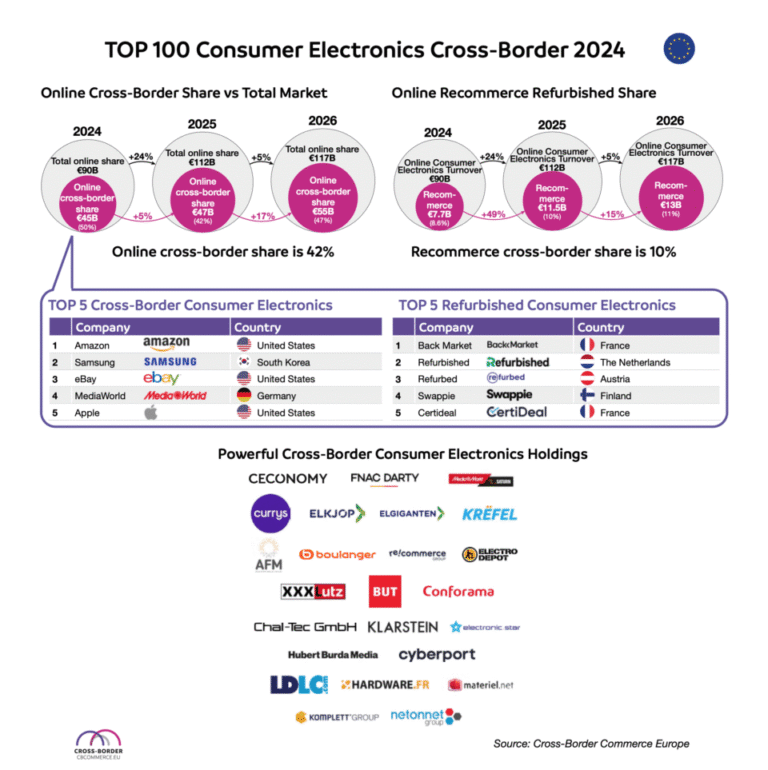
Most consumers are satisfied with the recommendations they receive from AI shopping assistants, yet skepticism about the technology persists, according to a recent study by a product experience company.
The study of 1,000 consumers conducted by Dynata for Boston-based Akeneo found that 84% of shoppers who made purchases based on AI recommendations expressed a positive experience, but only 45% of the consumers in the study had some level of trust in AI-powered recommendations and chatbots to provide accurate product suggestions based on their interests and preferences.
The study’s survey revealed that 75% of respondents had noticed AI recommendations or chatbots online. Of those, 44% have engaged with the technology, and 32% have completed a purchase based on an AI recommendation.
“The survey results validate the opportunity for retailers and merchants to invest in AI to improve product experiences, as customers are quickly realizing the value AI can deliver,” Akeneo said in a statement.
Mark N. Vena, president and principal analyst with SmartTech Research in Las Vegas, agreed. “The 84% satisfaction rate is a strong call to action signal for retailers to explore AI recommendations,” he told the E-Commerce Times. “It shows AI can drive conversions and customer satisfaction when implemented effectively.
“However,” he warned, “it’s not a blank check. Retailers still need to tailor AI to their brand, audience, and category.”
Good CX Trumps AI
While 1,000 people is a very small sample, the study’s results would support investigating this functionality, noted Rob Enderle, president and principal analyst with the Enderle Group, an advisory services firm in Bend, Ore.
“However, the analysis should include revenue generation,” he told the E-Commerce Times, “because the shoppers could be happy, but they may have bought a lower-cost product or ended up not buying at all, and that behavior would need to be factored in.”
A good experience is more important to a consumer than AI, argued HP Newquist, executive director of The Relayer Group, a business consulting company in New York City, and author of “The Brain Makers: Genius, Ego & Greed In The Quest For Machines That Think.”
“As long as they get a decent experience with the site that they’re on, they don’t care if there’s AI or a chatbot or a person helping them,” he told the E-Commerce Times.
“They are not being compelled to use a particular site because it has AI, simply because AI isn’t a factor yet in people’s purchasing decisions,” he said. “Anything that helps them get closer and faster to a purchase, that’s all that matters, be it human or machine.”
Audrey Chee-Read, a principal analyst in the CMO practice at Forrester Research, a market research company headquartered in Cambridge, Mass., pointed out that AI within shopping experiences has been around for some time now, though much of it — like product recommendations — wasn’t branded as AI until these past couple of years.
“As companies race to add AI experiences, search and product discovery get upended, so subpar experiences are going to be had,” she told the E-Commerce Times.
“At the same time,” she continued, “consumer behavior takes time to catch on. As companies race to add these on, consumers are not necessarily ready.”
“While some experiences may be objectively subpar, some may be due to inconsistent expectations from consumers,” she explained. “Companies need to know that it takes time for consumers to adopt new behaviors, and completely upending experiences before they are ready can hurt. So in a time where AI is still an enigma for many, baby steps in experience shifts, not big leaps, can help bring consumers up to speed.”
“Retailers can learn from others’ mistakes, but they shouldn’t wait to figure that out,” added Greg Sterling, co-founder of Near Media, a market research firm in San Francisco.
“Start small and iterate based on success and feedback,” he told the E-Commerce Times.
Hiding the AI Label To Build Trust
The study noted that the use of AI in e-commerce isn’t slowing down and will continue to become increasingly present on the front and back ends of retail operations. However, it warned that while the AI opportunity is ripe, it’s critical to balance its positive impact with the potential security risks. It added that the survey revealed major trust issues between consumers and AI.
Building trust is absolutely critical for retailers using AI, asserted SmartTech’s Vena. “To build trust, retailers need to be transparent about when and how AI is used,” he said.
“Showing explainable recommendations, offering human override options and surfacing user controls can help,” he added. “Above all, accuracy and relevance must consistently improve for trust to grow.”
“Retailers have to make sure AI recommendations are actually useful and good, that they’re grounded in real data or personalization,” Near Media’s Sterling added. “That’s a technical challenge, but not insurmountable.”
The Relayer Group’s Newquist argued that labeling experiences as AI can be a problem for retailers. “It’s always been an issue with artificial intelligence that it overpromises and underdelivers,” he said. “And when you underdeliver, it’s hard to get people’s trust back.”
“Retailers should be integrating AI into their operations; they just shouldn’t be calling it AI,” he asserted. “They should be talking about improved customer service. They should be talking about improved customer experience. They should be talking about improved buying assistance and recommendations. But they don’t have to say, which many of them are, here’s your personal AI assistant.”
Amplifying the Customer Experience With AI
Vena advised retailers to look at AI as a tool to amplify experience. “Done well, it can boost discovery, speed, and personalization — but it must serve the shopper, not the algorithm. Winning retailers will focus on hybrid models that blend automation with empathy.”
Enderle added that retailers need to develop some AI chops before deploying a solution. “Typically, you have an AI provider who doesn’t understand the business and a business that doesn’t understand AI, and the result tends to be sub-optimal,” he explained. “Picking a supplier who understands retail and coupling them with people in the company who understand the unique needs of the buyer can result in a far better outcome.”
“AI will continue to deeply integrate into the digital shopping experience and e-commerce platforms, but it must be done cautiously and purposefully,” Akeneo CEO Romain Fouache said in a statement. “Our data confirms that consumers are both cautious, yet curious and optimistic about the impact AI will have in the future as demand for transparency, trust, and increased personalization continues to grow.”
“As businesses focus on delivering strong experiences and support,” he continued, “it’s essential that trust and transparency are built into the product experience as the foundation of a strong and loyal customer relationship.”





